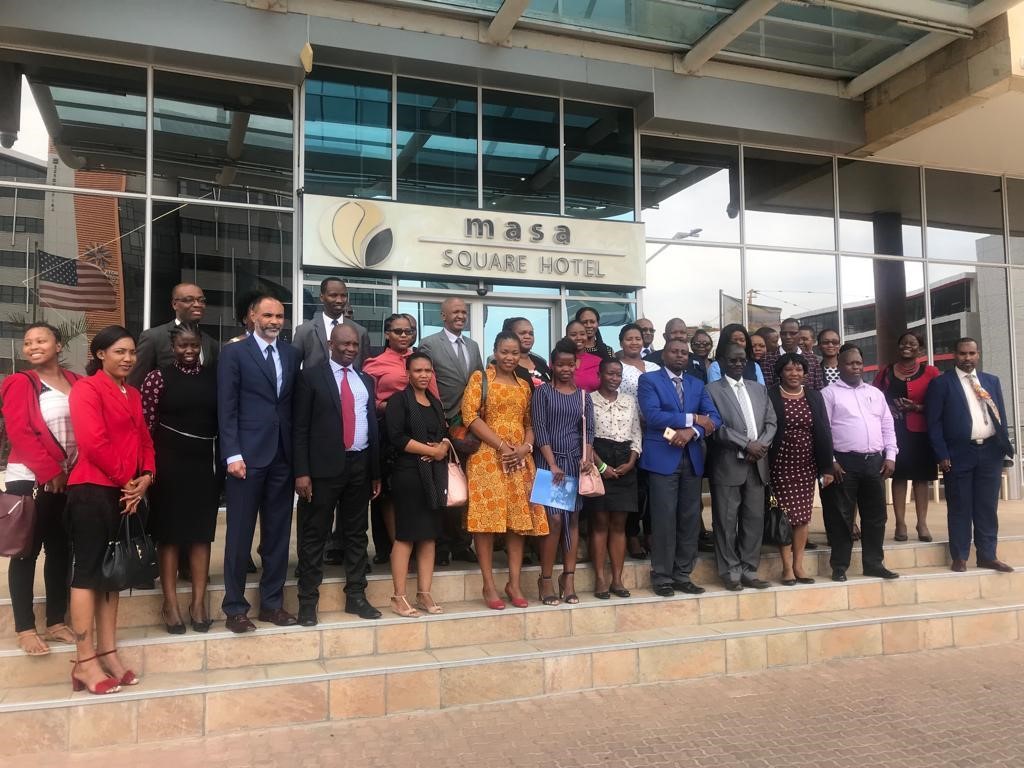Background
The 32 landlocked developing countries (LLDCs) - 16 in Africa, 14 in Europe and Asia and 2 in Latin America - face multiple trade and development challenges. While some of these challenges are geographical (being landlocked with no access to the sea and remoteness from international markets), most of them are also dependent on a single or a few primary commodities for their exports. Such a heavy dependence on exports of primary commodities is the among the reasons responsible for the jobless growth observed in LLDCs during the last couple of decades. The dual problem of commodity dependency and being landlocked compounds to impact the socioeconomic progress of LLDCs.
With the objective of addressing these multiple development challenges, governments of LLDCs, including those in Africa, have undertaken wide-ranging economic and institutional reforms. They put in place micro and macroeconomic policies and strategies to address structural economic weaknesses, underdevelopment and overdependence on the export of single or a handful of commodities. In addition to national policy and institutional reform efforts, the international community also adopted the Vienna Programme of Action (VPoA) in 2014 to support the development efforts of LLDCs. The objective of the VPoA is to address the special development needs and challenges of LLDCs and help them to achieve sustainable and inclusive growth towards the goal of ending extreme poverty. After 5 years of implementation of the agreed priority areas of the VPoA, towards the end of 2019, the General Assembly will conduct a Comprehensive Mid-term Review of the progress made in implementation.
UNCTAD’s preliminary assessment of progress in the implementation of key areas shows that the programme has not achieved the desired results. While several countries have continued to make progress on individual action areas, such as infrastructure building and regional cooperation, the group of LLDCs as a whole has faced significant challenges: economic growth remains sluggish, their share in word exports has declined, the gap between their exports and imports continued to increase and commoditization of their exports continued. In sum, LLDCs’ economies continue to be characterized by weak productive capacities and a lack of structural transformation; high transit-transport cost and poor export competitiveness; inadequate transit infrastructure; cumbersome customs and border crossing procedures; insufficient application of information and communication technologies (ICT); and inefficient trade logistics systems.
Objective
The African regional workshop will provide an opportunity to review trade and development challenges facing African LLDCs, including the implementation of the VPoA. It will help to identify and articulate key priority issues for LLDCs in the region for action at national, regional and global levels, including in the context of the Mid-term Review of the VPoA. The regional workshop is a follow-up to the previous national workshops held in the three pilot countries on fostering productive capacities and structural economic transformation. Building on the outcomes of the previous national workshops and against the backdrop of the above description, the specific objectives of the African regional meeting are to:
a) Share successful experiences and best practices on fostering productive capacities and structural transformation;
b) Identify areas where African LLDCs have been making progress and areas where they are lagging with a view to articulating recommendations for policy action;
c) Exchange views on the findings and policy implications of UNCTAD’s Productive Capacities Index for LLDCs;
d) Discuss the link between productive capacities, export diversification and employment generation in African LLDCs; and
e) Discuss the UNCTAD manual on how best to develop productive capacities and foster structural transformation.
The expected outcome of the workshop is to assist LLDCs in revisiting their domestic polices and strategies with a view to putting productive capacities at the center. It will also feed into the Mid- term Review of the VPoA, especially on Priority 5: Structural Economic Transformation.

The UNCTAD Regional Meeting on Productive Capacities, Export Diversification and Structural Economic Transformation in African Landlocked Developing Countries: Challenges, Opportunities and the Way Forward welcomed participants from several African countries including Botswana, Burkina Faso, Burundi, Ethiopia, Rwanda, South Sudan, Swaziland, Zambia and Zimbabwe.


